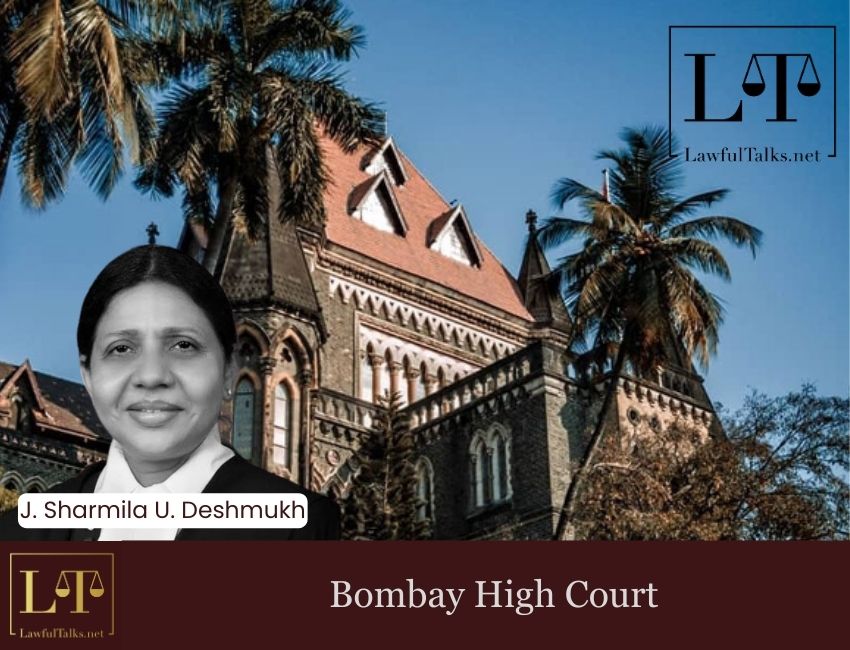Allahabad HC Sets Aside Afzal Ansari's Conviction, Allows Him to Continue as MP

Once liability is admitted, employers are bound to make payments within one month, while disputes over the quantum can be adjudicated subsequently without halting the disbursal of admitted liabilities.
The Bombay High Court, in a signification judgement by Justice Sharmila U. Deshmukh, ruled that an employer is statutorily required to pay the admitted compensation amount within one month, irrespective of any bona fide disputes over the exact amount payable.

The dispute involved a claim by Serbian nationals, legal heirs of a deceased pilot who had been employed by Air India Charters Ltd. Tragically, the pilot died in a crash in Mangalore in 2010. Initially, the company deposited a compensation amount of ₹3,32,15,589 with the Labour Commissioner’s office in 2012 under the guidelines of the EC Act. However, subsequent disputes arose as the respondents claimed additional interest and penalties, leading them to file further applications.
In response, Air India Charters Ltd. challenged this demand, arguing that there was a bona fide dispute regarding the quantum of compensation. The appellant argued that it was thus not liable for immediate payment pending adjudication of the disputed amount.
Justice Deshmukh held that even if there is a bona fide dispute about the compensation amount, employers must pay the admitted liability within a prescribed time limit. As per Section 4A of the EC Act, any delay in payment beyond one month from the date of the accident automatically attracts interest, and further penalties may apply upon a Commissioner’s adjudication.
The Court observed:
“...irrespective of a bona fide dispute as to the amount of compensation payable, the employer is statutorily mandated to make the payment of the admitted liability within a period of one month from the date of compensation and the making of payment is not suspended till adjudication of the claim by the Commissioners under Section 19 of the EC Act.”
In its decision, the Court relied on the Supreme Court’s judgement in Ved Prakash Garg v. Premi Devi, AIR 1997 SC 3854, wherein it was held that both the principal employer and the insurer are liable not only for the principal compensation amount but also for accrued interest. In Ved Prakash Garg, the Supreme Court had observed:
“The Insurance Company is liable to pay not only the principal amount of compensation payable by the insurer employer but also interest thereon if ordered by the Commissioner.”
The Court explained:
“The provisions of Section 12(1) of EC Act under which the liability is imposed on the principal employer is limited to the payment of compensation... the imposition of interest is a statutory elongation of the liability of the employer to make good the principal amount of compensation within the permissible time-limit.”
Justice Deshmukh clarified that penalties for delays in payment are not automatic but are instead subject to the Commissioner’s assessment of whether there is a justifiable reason for the delay.
The Court stated:
“...the penalty does not automatically flow from the main liability incurred by the employer and it is only if the Commissioner, after giving reasonable opportunity to the employer to show cause, takes the view that there is justifiable reason for delay on part of the employer that the penalty would get imposed on him.”
The Bombay High Court, in allowing the appeal, outlined specific terms for calculating compensation and interest. First, it directed that compensation should be based on an amount of USD 9,170, multiplied by a factor of 135.56.
Additionally, the exchange rate for this calculation should be the higher of the rate on the accident date or the date of deposit, as stipulated by Section 4-A of the Employees’ Compensation Act (EC Act).
The Court also ordered that the appellant must pay 12% interest per annum from the date of the accident until the compensation is deposited with the Commissioner in compliance with Section 4-A(3)(a) of the EC Act.
Finally, it clarified that no penalty could be imposed on the principal employer under Section 12(1) of the EC Act.
Case Details: Air India Charters Ltd. v. Tanja Glusica & Ors., First Appeal (C) No. 1854 of 2013
Advocate for Appellant: Firoz Bharucha, Jehan Lalkaka, and Faiyaz Khan.
Advocate for Respondents: Rishi Ashok and Arya Krishnan.
(For more updates, tap to join us on Whatsapp, Facebook, Instagram and LinkedIn)

Sonam Pandey
Law Student
Latest Posts
Categories
- International News 19 Posts
- Supreme Court 352 Posts
- High Courts 366 Posts




























































































































































































































































































































































































































































































































































































































































































































































